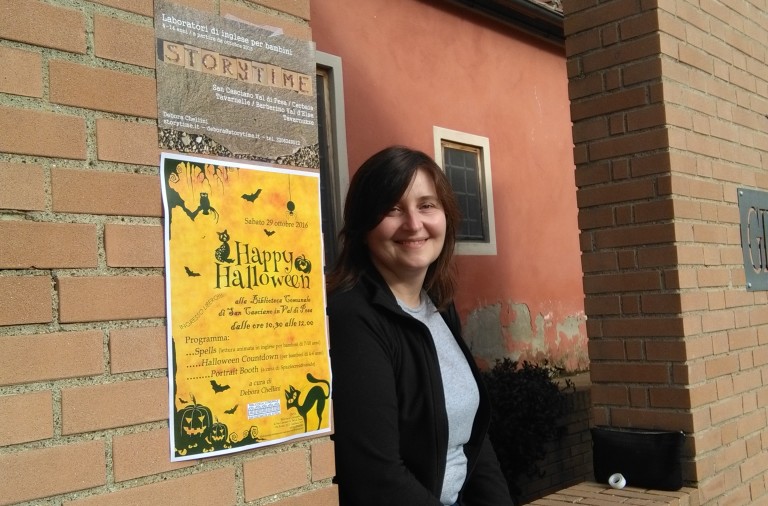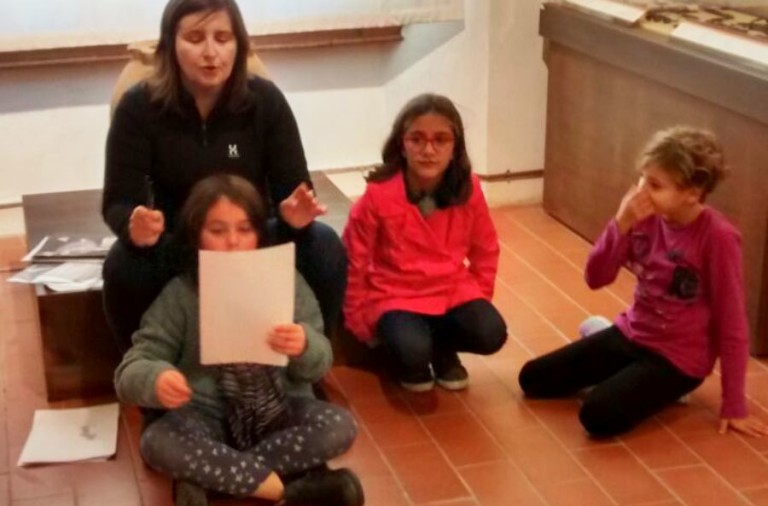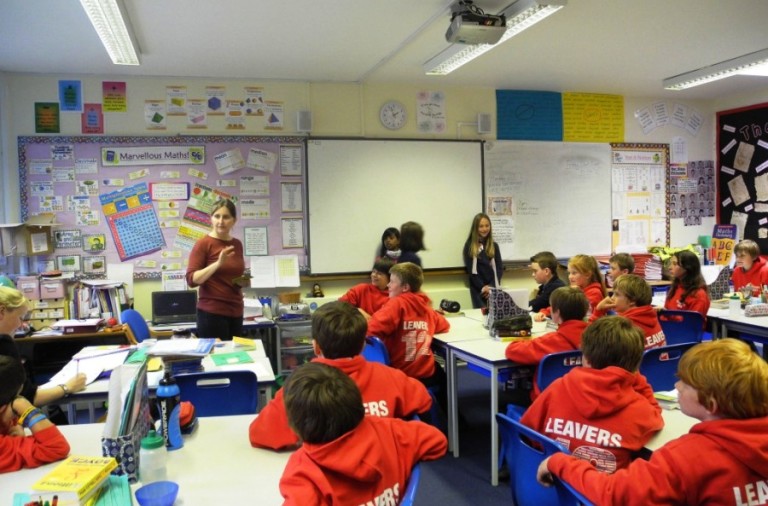Articolo disponibile anche in: Italian
Story Time, an English workshop run by Debora Chellini, has taken place in the Giuliano Ghelli Museum in San Casciano for the last seven years.
Here, the English language is taught in a dynamic and creative manner through activities that regard the territory. We met with the creator and teacher of Story Time, Debora Chellini, who told us how it began and developed.
Debora graduated with a degree in English language and a Masters in teaching methodology from the Richmond University of Florence and has received the patronage of the towns of San Casciano and Tavarnelle.
We sit down with Deborah and she begins her story: “In 2009, some parents who knew me went to Town hall and said they wanted to do a workshop with me. Chiara Molduccii, who had just become the Assessor of instruction, called me. I showed her the curriculum for the workshop and she was very pleased. She said the town was interested in promoting the idea”.
In September, 2009, in the museum’s teaching auditorium, Debora began her first lesson for primary school students , crowning her dream of working with small children.
“I did two hours of lessons,” she remembers, “then readings in English open to teachers and parents, thanks to the collaboration of the library which continues to help today. The moral of the story is that the project began to grow in less than 2000 years! When the students went to middle school they asked me: Are you going to abandon us?”.
This was the question that required an answer. “Therefore, continues Debra, in the afternoon we began lessons for older students with a total of 60, divided into five groups. For the last 3 years we have run a course for children from 4 to 6 years old divided into two groups. Starting this year we will have a group of adults in a family workshop that will take place once a month”.
Story Time is also available in other Chianti towns: Tavarnelle, Barberino, Tavarnuzze and, starting next year,Impruneta. Together with the library, this year they are beginning a contest for students in the San Casciano school district which will offer prizes and free lessons for the winners.
At the end of the interview what is most important is the significance of Deborah’s work. “The greatest satisfaction,” she explains, “is to see students who try to speak English even when we take trips outside of the town. Or when we did the project, Acquolina, when foreign tourists fooled around with us and stayed to eat gelato. I am happy to work with students with which I have created a wonderful rapport and whose parents have understood the importance of this project”.
“Because,” she says in conclusion and with great conviction, “English isn’t the ends but a means to open the world. I leave students at the end of middle school with this knowledge: to have given them an instrument to be good students and citizens of the world0”.
Silvia Luis


